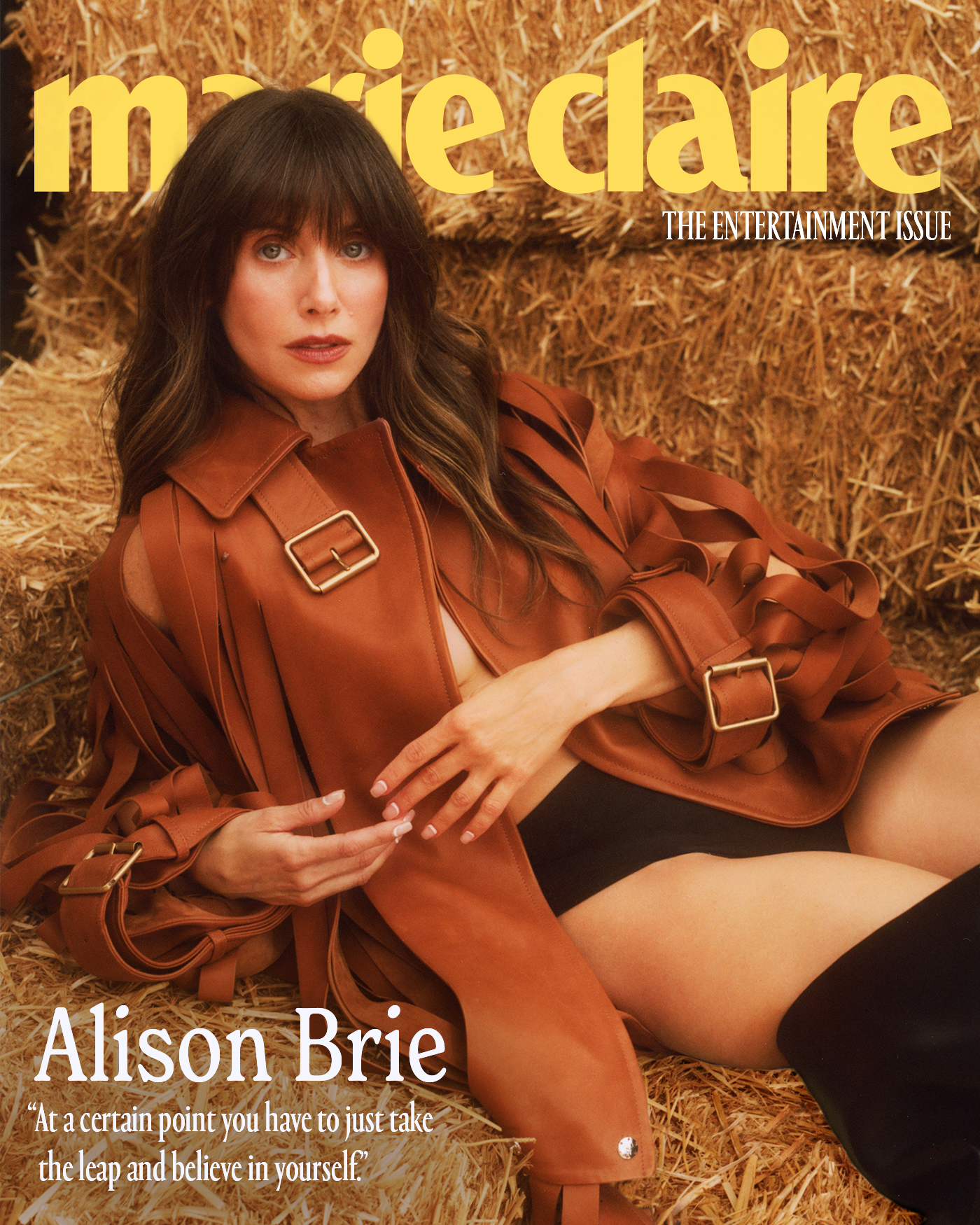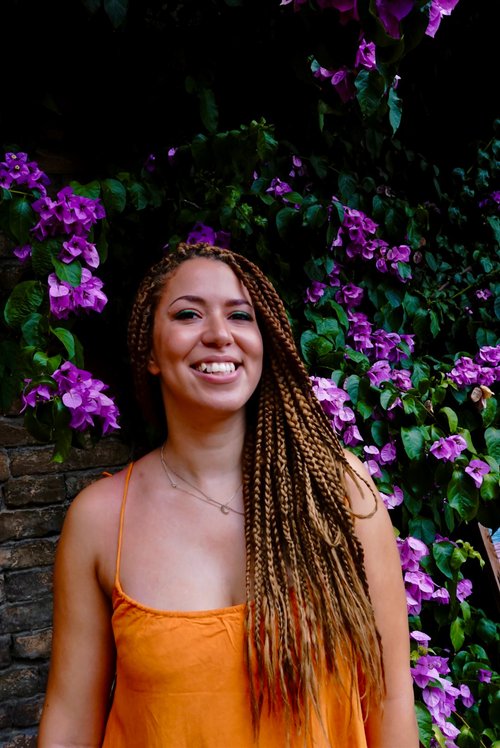The Rom-Com Is Having an Identity Crisis
This summer's on-screen love stories are more bleak than bubbly. What does that say about modern dating—and what audiences want from the genre now?

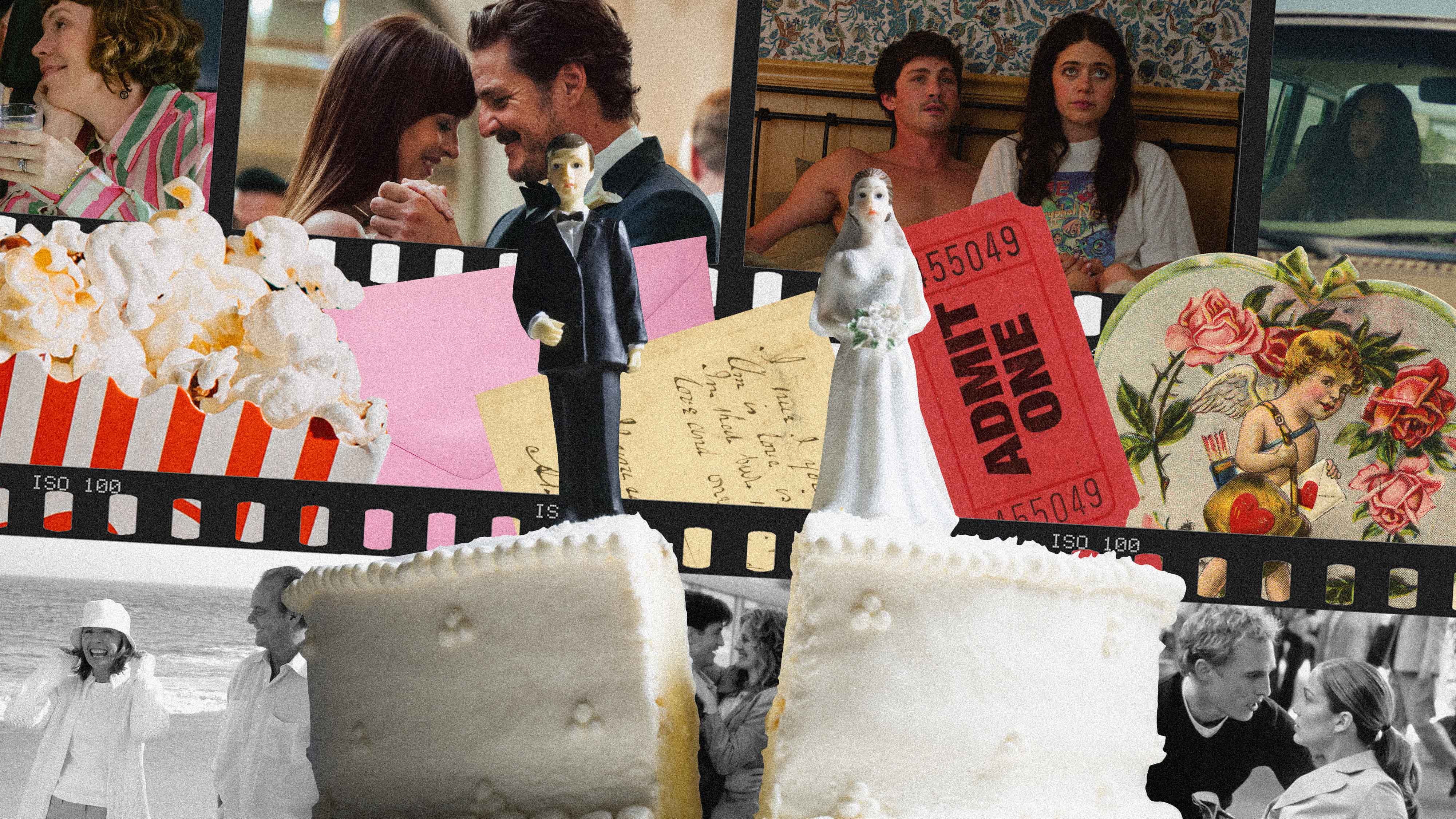
Picture a 1990s or early 2000s film: soft-filtered pastels, jazzy soundtracks, a curly-haired heroine making poor decisions in the name of love. It was a simpler time. Or—it wasn't, actually—but it certainly felt like it, cinematically. Whether the subject matter was fated love (falling for a widow via the radio in Sleepless In Seattle) or star-crossed circumstance (a bookstore owner and a movie star colliding in Notting Hill), the vibes were sweet, and the endings mostly euphoric.
In contrast, the summer of 2025 may as well be dubbed the season of the anti-rom-com. From horror-influenced takes like Together and Oh, Hi!, to dark break-up comedy The Roses and the tonal sterility of Materialists, we are, as one seasoned producer I spoke to put it, in a season of "rom-coms by way of misery.”
So how did Hollywood get from 1997—when My Best Friend's Wedding was considered subversive for its untraditional “happy ending”—to now when nearly every major movie billing itself as a rom-com is dark and twisted from start to finish? Perhaps it’s because Hollywood as a whole is flailing. I've seen it myself, as a screenwriter regularly pitching rom-coms to studios. In 2025, the genre has splintered into something messier and more self-aware, shaped by cultural fatigue, shifting expectations around love and dating, and a growing appetite for stories that reflect just how bleak modern romance can feel. Now, studios are guessing at what people will venture out to theaters to see—and what stories a populace deadened by our current cultural climate can actually relate to. The result is a wave of films that trade twinkle lights for discomfort, and happy endings for something more complicated.
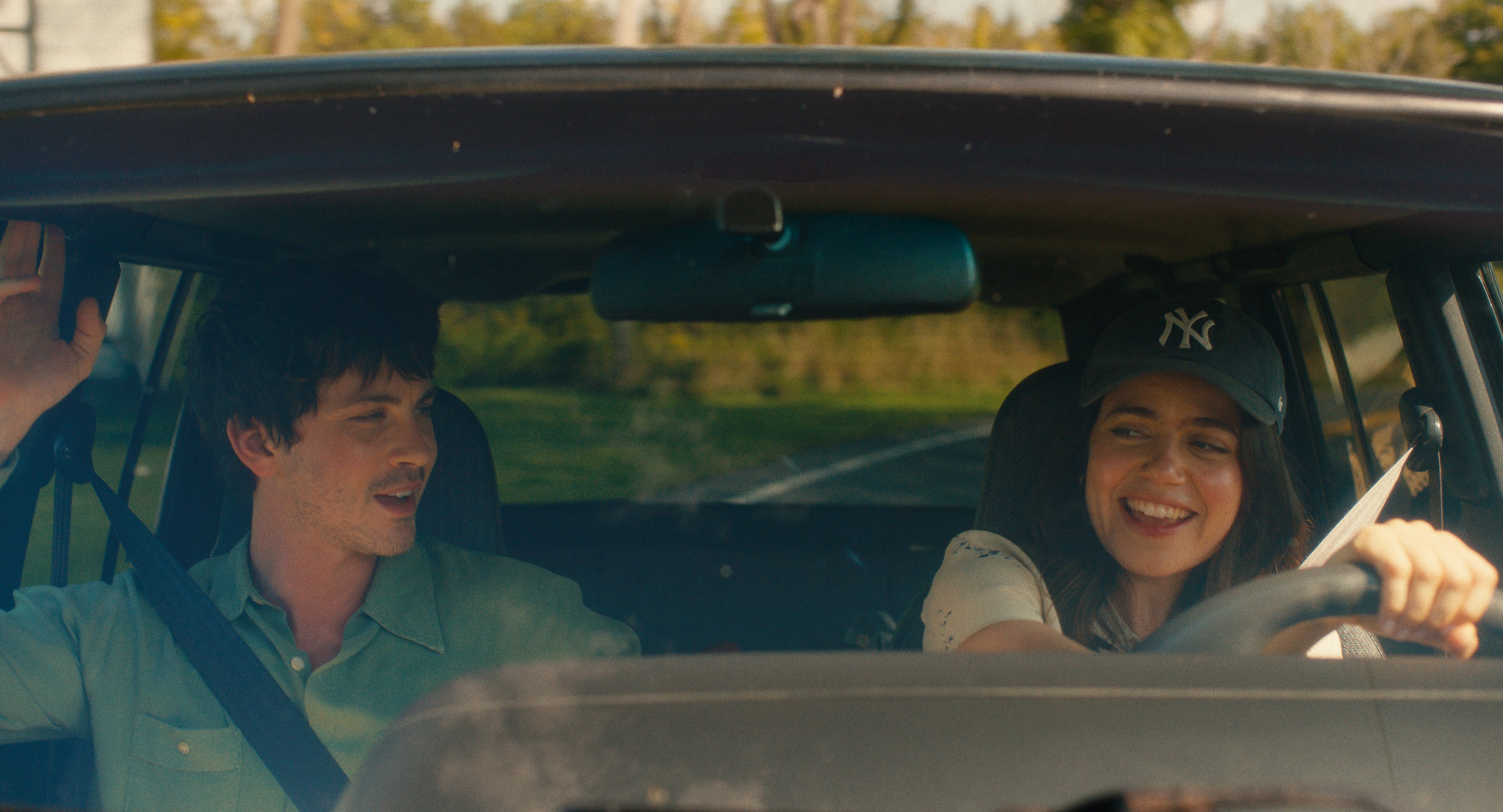
Isaac (Logan Lerman) and Iris (Molly Gordon) discover they're on different pages in their relationship while on a weekend away in Oh, Hi!.
Consider July’s Oh, Hi!, starring Molly Gordon and Logan Lerman as the infatuated Iris and Isaac, who embark on their first romantic weekend away. Afternoon delights and firelit vulnerability take a turn, however, when Iris comments on the surprising ease of their new coupledom. She does not get the reply she expected, and their adorable upstate romance quickly devolves into a horror movie by way of situationship. The female lead holds Isaac captive, spending the bulk of the movie trying to convince the commitment-averse young man to see her value—and acting out the existential dread so many have experienced upon realizing their beautiful blossoming relationship is a farce.
Given all of the above, Oh, Hi! is hardly a traditional romantic comedy—but its writer-director, Sophie Brooks, still very much sees her film as fitting within the genre. "I think the purpose of rom-coms is to relate and feel ultimately amused…I think we're in a moment, in a beautiful way in our culture, where we're really craving freshness and originality and to feel seen," Brooks told me over Zoom in early July. "I'm a very romantic person and I really believe in love. I've also been a single woman dating in my thirties and been like, 'This is a hellscape.'"
Brooks seems to point to a growing trend in the industry: In search of the more grounded, the more searingly "real," filmmakers and execs alike have leaned on the sardonic, the sarcastic, and the skeptical that reflect their own less-than-ideal relationship experiences. (And in doing so they’ve earned praise within a genre that’s historically slept on by critics. The Hollywood Reporter said of Oh, Hi!: “The film is sure to attract young fans and find its audience. At its root, this is a surprisingly sensitive commentary on uniquely millennial romantic loneliness.”
Celine Song, too, mirrored her own life with this summer’s Materialists, pulling from her short stint as a matchmaker. And like Brooks, Song also sees her newest movie as a romantic comedy despite Song approaching the themes of her movie with a candor that can be rare for the genre. In my theater, the air drained from the room when Dakota Johnson's character, Lucy, finds out that a matchmaking client of hers was assaulted on a date. "Has something like this happened before?" Lucy asks her boss (Marin Ireland). "Of course," the boss replies. "This is dating."
Set against a posh New York City backdrop, the film's characters treat each other like lists of traits on a sheet of paper—no shorter than 6’2”; no incomes less than six figures; "no baldies"—a means to an end for their social and economic ambitions. It tracks, within that narrative, that Lucy would be forced to face the bleakness of her own world by someone taking its very concept too far.
Get exclusive access to fashion and beauty trends, hot-off-the-press celebrity news, and more.
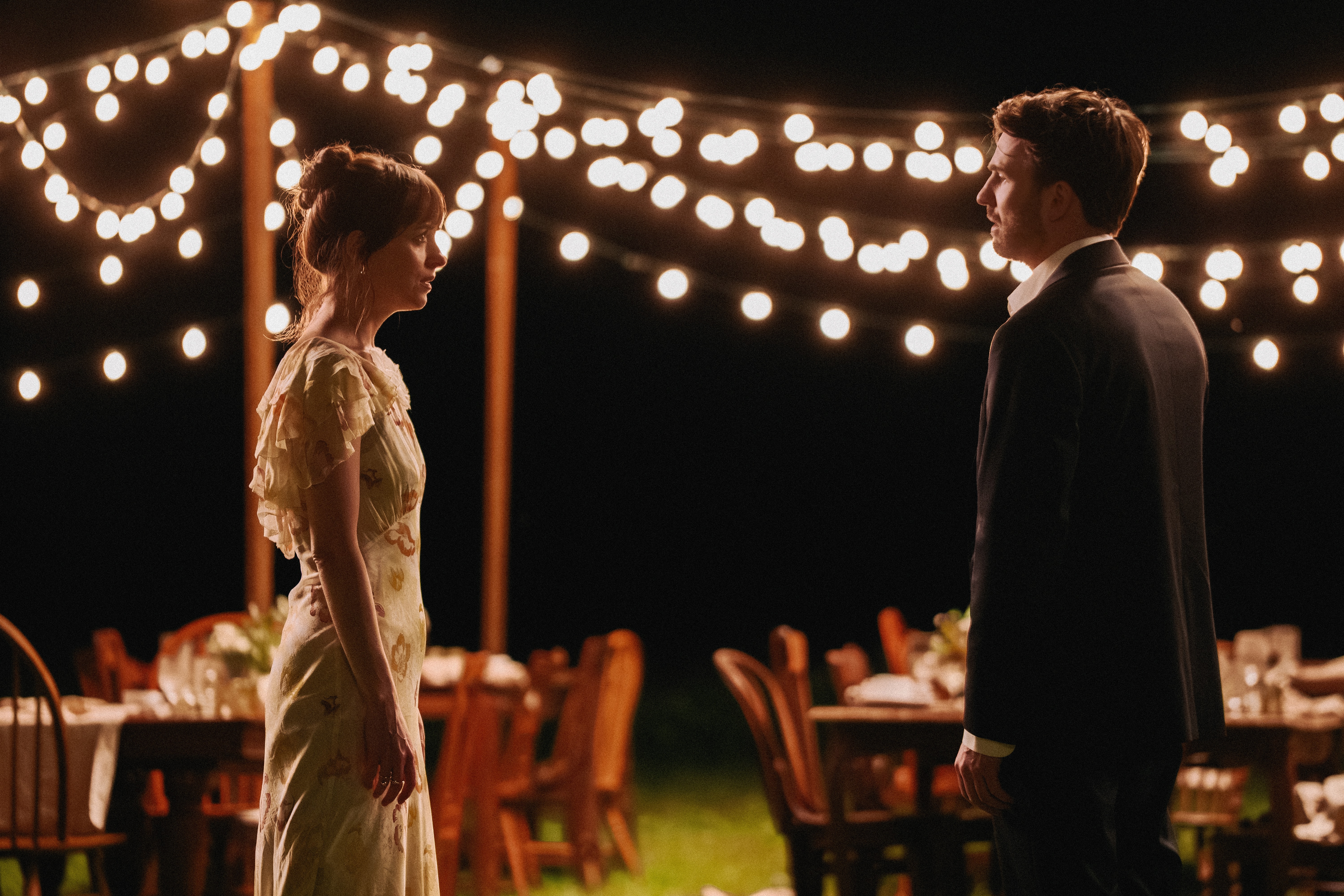
Lucy (Dakota Johnson) is caught in a love triangle with a former flame, John (Chris Evans), in The Materialists.
From Song's perspective, that subversion brought Materialists closer to its audience. And ultimately it paid off: The film earned an estimated $12 million at the domestic box office in its opening weekend, making it the third-largest opening for an A24 film ever. “We’re not just showing up here to be in love and beautiful and get to be in a rom-com,” Song told the Los Angeles Times. “We’re also going to take this opportunity to talk about something. Because that’s the power of the genre.” It's worth noting that, among the 2025 fare described so far, Materialists is the most earnestly optimistic of the bunch. Spoiler alert: Lucy chooses love over her list, kissing her love interest on a stoop straight out of an Ephron movie.
"I think we're seeing it in books and in features that people, even underneath these movies that might otherwise feel a little frothy, are trying to really say something," says the producer I spoke to. (They requested anonymity to speak candidly about internal studio dynamics.) “We're getting more drama in a way. The classic '90s rom-coms were about a big idea, but not necessarily a heavy topic.”
Many of this summer’s films follow that lead, often starring A-listers better known for dramatic roles—actors capable of digging into more layered material. In The Roses (out August 29), Olivia Colman and Benedict Cumberbatch play a couple whose charming meet-cute slowly curdles into decades of resentment. The film presents itself as a sun-drenched romance, only to reveal itself as a deeply cynical satire of marriage—one where irritation and disappointment seem inevitable. Splitsville (September 5) follows suit with a messier, more absurdist tone: Dakota Johnson and Adria Arjona star in a polyamorous entanglement between two couples unraveling through open relationships and retaliatory affairs. (And an eight-minute standing ovation at Cannes Film Festival signals audiences appreciated the premise.)
Together, these films reflect a recurring message: the modern romance movie isn’t just skeptical of love—it’s steeped in emotional exhaustion.
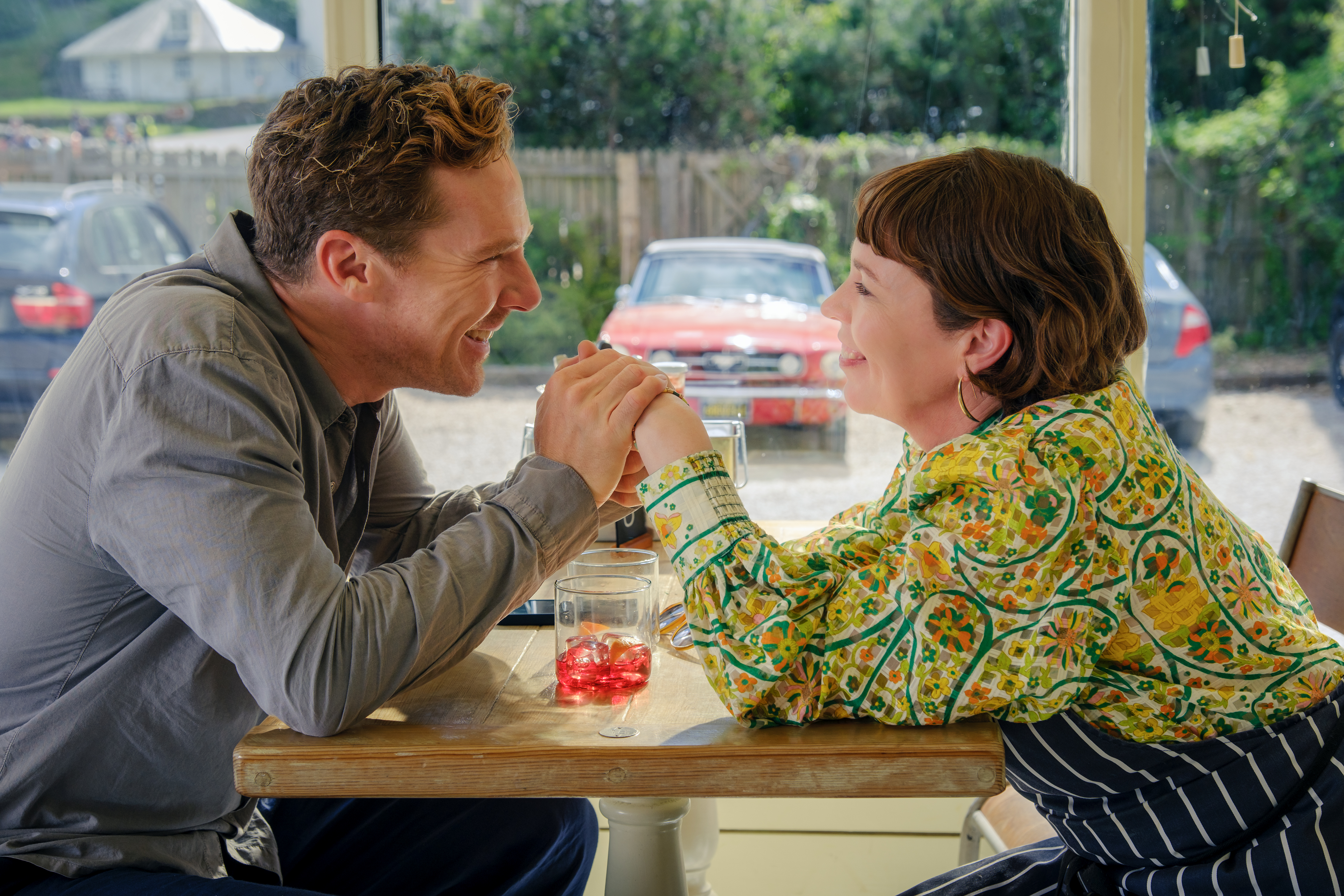
Ivy (Olivia Colman) and Theo (Benedict Cumberbatch) are a seemingly perfect couple at the start of The Roses.
That disillusionment isn’t just creative—it’s commercial. The entertainment industry has always been a messy blend of the artistic and the aggressively corporate, with both sides shaping what gets made and how it’s sold. These days, rom-coms are often seen as a risk no one wants to take. “Directors really stay away from this genre, because even if you make a great one it’s not a genre that’s super well-respected in terms of filmmaking,” says producer Alex Saks, whose credits include No Hard Feelings and It Ends With Us. “If a rom-com doesn’t work—and most of them don’t—directors go to director jail.”
And without a boldface director attached, attracting an A-list cast becomes even harder. “To do a traditional rom-com you need a [certain level] of movie star,” Saks says. “The stars that we used to have—the Sandra Bullocks, Reese Witherspoons, Julia Robertses—they liked doing these movies. And now we don’t have a generation of stars that can really uphold them.” That casting crunch, she adds, is pushing financiers toward more genre-blending, subversive projects: “They’re choosing to throw something else into the mix to protect potential downsides.”
The other producer I spoke to is inclined to agree. As a development exec who’s worked with multiple A-listers and still champions the genre, she’s noticed a clear shift in studio appetite. “You need a different hook these days,” she said. “And honestly, I think you need more of an edge. We’re at a point where we’ve decided that romance doesn’t seem edgy.” Even Nancy Meyers couldn’t secure the budget she’s long commanded, ultimately scrapping a Netflix project mid-development.
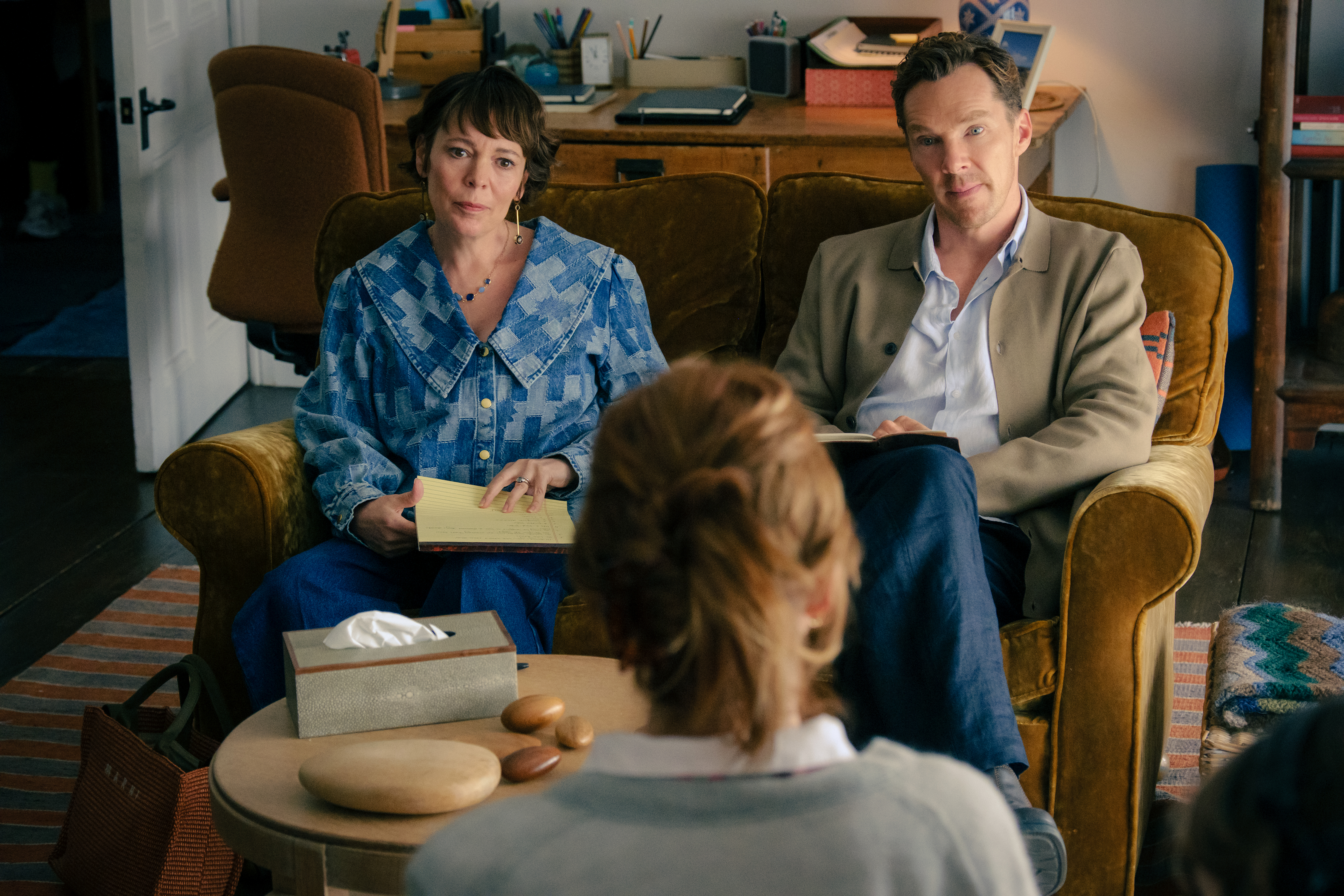
The Roses reimagines the classic 1989 comedy The War of the Roses, a film based on a novel by Warren Adler.
Still, the producer believes the genre continues to sell in Hollywood, just not in the form many audiences grew up loving. The more "traditional" rom-coms—the sunnier, more aspirational fare of the '90s and 2000s—are largely being adapted from existing IP. "Basically every Emily Henry book is in development," she says. As of July, Henry, whose books all include the classic happily-ever-after, has one film (Beach Read) and one television show (Happy Place) headed to Netflix and five of her six published novels somewhere in the process of adaptation.
That, too, is part of the shift. The genre hasn’t vanished so much as split along tonal and commercial lines. This summer’s theatrical slate—marked by sarcasm, emotional fatigue, and narrative risk—caters to an audience that craves realism and edge. Meanwhile, the formulaic, lower-budget Hallmark-style rom-coms and IP-driven adaptations are still quietly thriving elsewhere, offering a familiar fix.
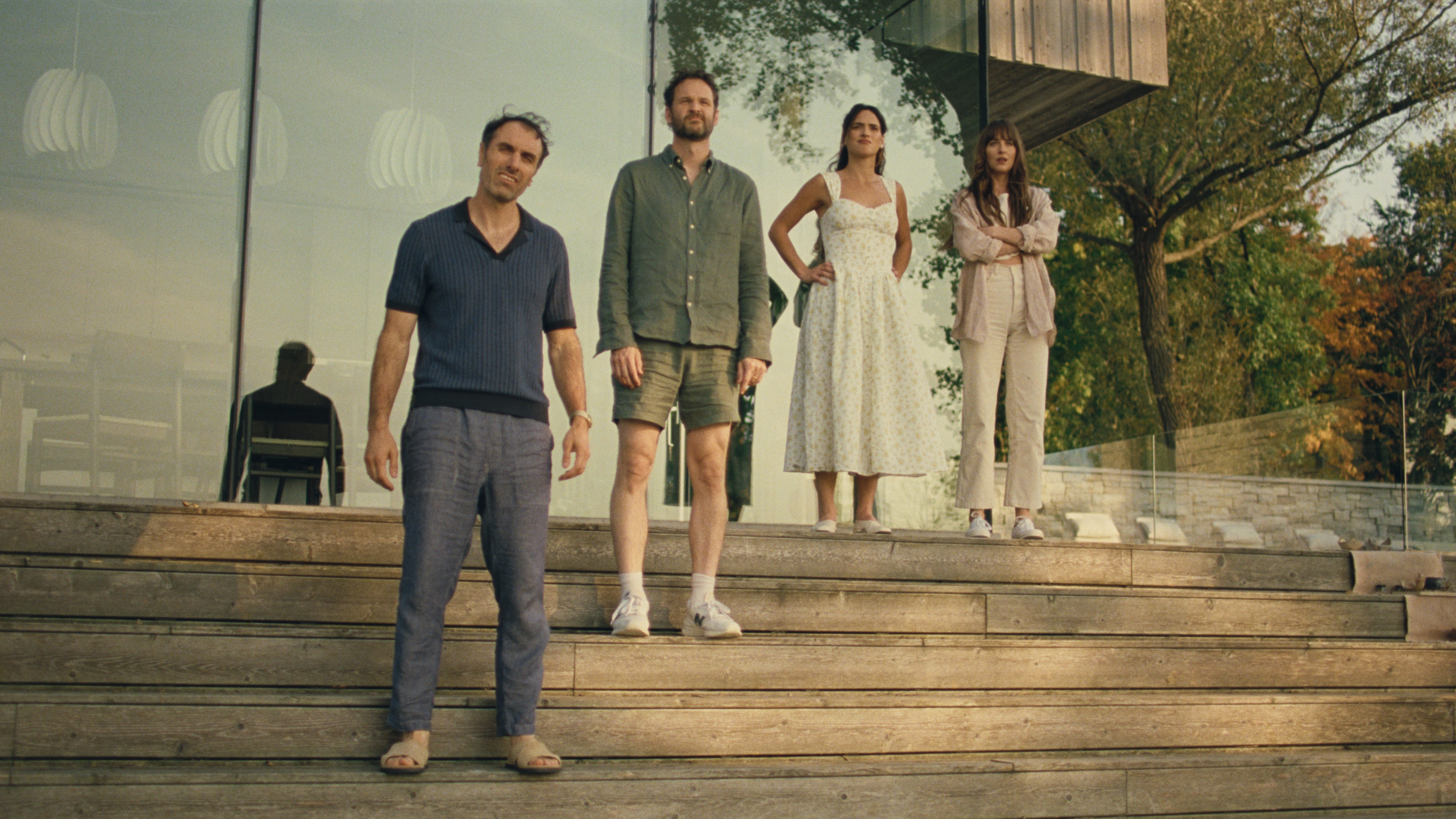
In Splitsville, friends Paul (Michael Angelo Covino), Carey (Kyle Marvin), Ashley (Adria Arjona), and Julie (Dakota Johnson) are thrown into chaos when Ashley asks Carey for a divorce, inspiring him to explore Paul and Julie's philosophy of an open marriage.
In some ways, the rom-com has adapted to survive, meeting different audiences where they are: some nostalgic for comforting structure, others looking for stories that reflect their messier, more skeptical realities. The genre hasn’t chosen a single direction—it’s fractured, yes, but also expanding.
But even if the genre is splintered, it’s far from dead. Maybe there’s room for all of it—the jaded, the joyful, and everything in between. Hollywood, after all, loves to ride a wave. Remember 2024, when three major movies centered on women over 40 dating guys in their 20s (two of them starring Nicole Kidman)? Or 2011’s dueling fuck-buddy rom-coms? Now, Celine Song is developing a sequel for My Best Friend's Wedding. Which suggests that even now, the genre might still pull off its signature trick: bringing two seemingly incompatible things—twinkle lights and subversion—together in the end.
Alanna Bennett is a screenwriter, culture writer and the author of the novel The Education of Kia Greer. She has written for film and television, including XO, Kitty and Roswell, New Mexico. Formerly on staff at BuzzFeed News, her work has also appeared in The New York Times, The Cut, Glamour, Teen Vogue, Refinery29, and many more.
